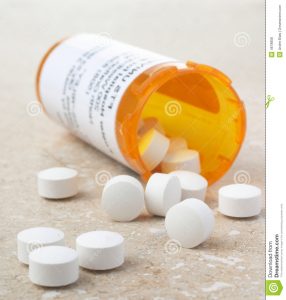I first read SB 10 in January this year, to prepare for a presentation to a north Texas group on how to read the thousands of bills that our state legislature introduces. I chose SB10 to use as demonstration because, as I always do every year that our legislature is in session, I try to read all the bills that my House Rep. and Senator file. In January the only bill that either of my legislators had authored was that of SB10, which eventually all 31 senators signed on as authors/co-authors. Sen. Jane Nelson is the Primary Author of SB 10.
In reading the 10 page bill I only needed to read the first page to realize  Texas students were about to be mentally assessed and drugged on our local school campuses.
Texas students were about to be mentally assessed and drugged on our local school campuses.
How Can I say This, When SB10 Does Not Say This?
As happens most of the time, it’s not so much what the bill says in the plain text, but what the bill does not spell out in plain text. In other words, you have to look at the statutes (current law) that the bill does mention (usually just by mentioning a “section number” of a statute) but fails to specifically recite within the text of the bill.
SB 10 and the “Community Mental Health Providers”
SB 10 will pave the road for our children to be assessed for mental health by the psychiatry colleges on a local school campus, as passed by the senate (engrossed version) https://capitol.texas.gov/BillLookup/Text.aspx?LegSess=86R&Bill=SB10
Step by step explanation:
Page one of the bill:
SECTION 1. Subtitle E, Title 2, Health and Safety Code, is
amended by adding Chapter 113 to read as follows:
CHAPTER 113. TEXAS MENTAL HEALTH CARE CONSORTIUM
SUBCHAPTER A. GENERAL PROVISIONS
Sec. 113.0001. DEFINITIONS. In this chapter:
(1) “Community mental health provider” means an entity
that provides mental health care services at a local level. The
term includes community centers established under Subchapter A,
Chapter 534.
As SB 10 says, “Community mental health provider” includes the “community centers” established in Chapter 534.
I’ll show you the text of the Health and Safety Code’s definition of “community center” here:
https://statutes.capitol.texas.gov/Docs/HS/htm/HS.534.htm#00
Sec. 534.001. ESTABLISHMENT. (a) A county, municipality, hospital district, or school district, or an organizational combination of two or more of those local agencies, may establish and operate a community center.
In conjunction with the definition of “community center” now having the meaning of “community mental health provider” a school district could operate as a “community mental health provider”. This, plus we also know that in 2001 the Texas Legislature passed SB 19 (also authored by Sen. Jane Nelson) which created the “local school health advisory council” (SHAC). The SHAC is appointed by the trustees of a local school board. The SHAC is advisory only in nature to the school board, on a broad array of so-called “health” curricula as seen in the Education Code:
https://statutes.capitol.texas.gov/Docs/ED/htm/ED.28.htm#28.004
If that’s not sufficient, there’s Sec. 38.051. ESTABLISHMENT OF SCHOOL-BASED HEALTH CENTERS for cooperative health care programs for students and their families that may compete for grants [created in 1999].
https://statutes.capitol.texas.gov/Docs/ED/htm/ED.38.htm#38.051
Or there is Sec. 38.058. HEALTH EDUCATION AND HEALTH CARE ADVISORY COUNCIL; the establishment of school-based health centers [created in 1999].
https://statutes.capitol.texas.gov/Docs/ED/htm/ED.38.htm#38.058
When one places SB 10 on top of the SHAC, or other vehicle in statute, one can see how the “CHILD PSYCHIATRY ACCESS NETWORK AND TELEMEDICINE AND TELEHEALTH PROGRAM” will “facilitate access to mental health care services through telemedicine, telehealth” to “improve and expand the psychiatric workforce through training and development opportunities between the health-related institutions of higher education listed in Section 113.0052 and community mental health providers.”… “A center established under this section shall collaborate with community mental health providers to better care for children and youth with behavioral health needs by providing consultation services and training opportunities for pediatricians and primary care providers operating in the center’s geographic region.”[text from SB 10]
While many parts of the Texas Education Code and the Texas Health and Safety Code sound innocuous, and perhaps even good all by themselves, when exercised all together one can see how onerous and abhorrent all the parts together can be.
These colleges of psychiatry offer a medical solution. Medical solutions  are drugs. If school shooters have a history of psychotic drug history, how likely will more drugs decrease this man-made disaster?
are drugs. If school shooters have a history of psychotic drug history, how likely will more drugs decrease this man-made disaster?
Not only does SB 10 create this new mega “consortium” but it creates the Child Psychiatry Access Network (CPAN) and Texas Child Health Access through Telemedicine Program (TCHAT), to provide a “training ground” for mental health and behavioral assessments to the psychiatry colleges. It is after all called medical “practice”.
Also of concern with this newly formed “Texas Mental Health Care Consortium” is that the Chairs of the academic departments of psychiatry at each of the 12 universities have majority control of this new government creature. Colleges of Psychiatry are funded by pharmaceutical companies to churn out salesmen for their products known as psychiatrists (good return-on-investment). This is evident as SB 10 states the purpose of the bill…
“developing training opportunities for residents and medical students …to expand the psychiatric workforce through training and development opportunities”.
How do they increase these development opportunities? By supplying more lab rats (children) as training subjects.
Data Collected and Shared (Mental Health Assessments)
Another concern that has disastrous capabilities is the data collected by these mental health and behavioral assessments and the sharing of that data. Congress has set in place a federal Universal Data Base on students from Pre-K through the Workforce. Texas accepts lots of Federal grant dollars for “education” and with that comes compliance with the sharing of our children’s data. You can read more specific details here. Be sure to scroll down to “There are 16 conditions listed under which NO PRIOR CONSENT IS NEEDED”.
What if a child is mis-labeled by these psychiatrists-in-training? That label will be on his/her permanent record and follow them from school to workforce. The authorities will say that errors can be corrected but I have spoken to a few parents who spent years to successfully remove erroneous data from their child’s record.
SB10 is a Red Flag Law, meaning our children can be asked if mom or dad own a firearm. How about Uncle Bob or Aunt Lucy? How about the neighbors next door? Again, read the details here.
WHAT CAN YOU DO?
Phone your senator and let him/her know of your disappointment. Not one single senator voted the correct way (that would have been “against“) on SB 10 on March 5th.
SB 10 is now over in the House of Representatives, waiting for a committee assignment, a committee hearing, and a vote from the House Reps. We have an opportunity to kill it in the House.
Phone your state House Representative (CLICK here) and tell him/her that…
- Texas already has laws that allow public schools to refer parents to medical assistance.
- We don’t want our schools turned into mental health guidance centers or training grounds for the university departments of psychiatry!
- We don’t want our children’s school records carrying a misappropriated diagnosis/label that has potential to follow them the rest of their lives.
- We want our schools to return to their original intent with the classical core content that made America great. The government has never been a good nanny. Leave the parenting to those God intended, not government.
Thank you. Your actions are affecting my posterity’s future.
-Barbara Harless

One thought on “Should Texans Support Psychiatric Assessments of Children in our Local Elementary Schools (SB10)?”
Comments are closed.